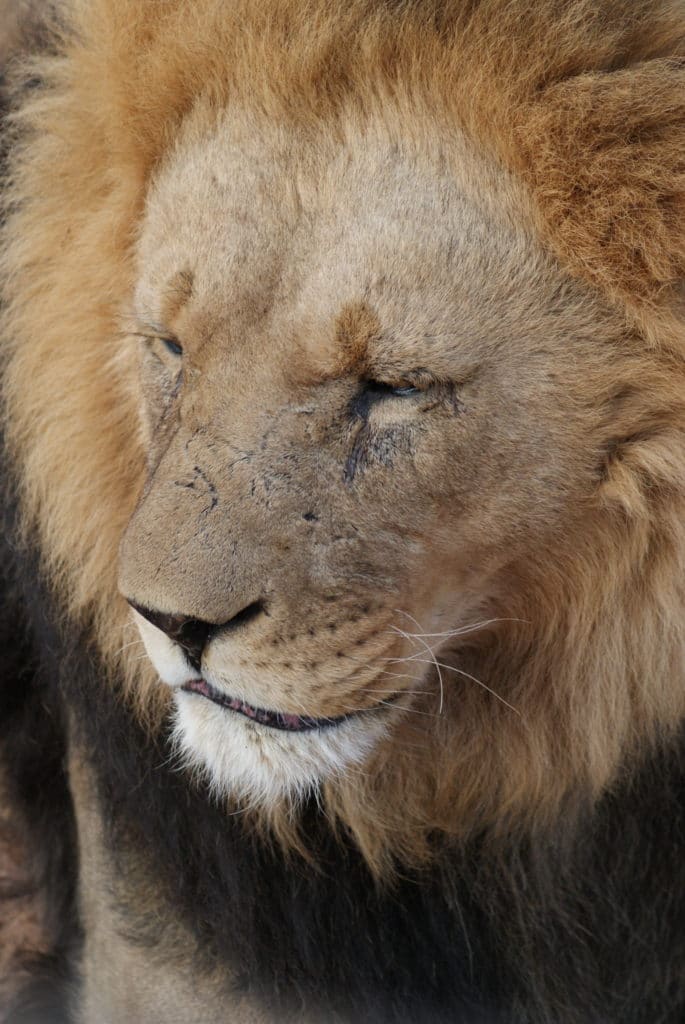Watching a gorgeous sunset over the South African terrain, I’ve never felt more connected to my life’s calling of conserving wild animals and wild places. I was half-way around the world, experiencing nature in a way that I never had before. This experience has shaped the very core of who I am, what I believe in and what I fight for.
Not only do safaris provide a safe way for guests to observe nature, but they also actively contribute to local conservation efforts. The Aquila Private Reserve, located in Touws River–two hours outside of Capetown, SA–is a 10,000-hectare conservancy that protects Africa’s natural wildlife. Many animals call this place home; they find safety and protection here. The lions that live on Aquila’s reserve were rescued from the ‘canned hunting’ industry, a practice in which animals are bred specifically to be hunted and then drugged and forced into small enclosures. Elephants living on the reserve were rescued from culling practices that segregate animals from their herds for hunting. It became clear that every animal had a story. The safari guides’ passion for sharing these stories deeply inspire me.

The meaning of the word ‘safari’ has changed over the last few hundred years. The term ‘safari’ originally referenced large scale game hunts, with participants often hunted Africa’s ‘big five,’ which includes the lion, leopard, elephant, rhinoceros, and Cape buffalo. These animals were on the verge of extinction by the late 1700s. Through the decades, the term has taken on new meaning. Today’s safaris focus on observing, photographing, or recording wildlife in its natural state. Safaris provide us a chance to appreciate and experience our wild spaces it in a completely different way.
In 2011, poachers attacked three rhinos at the Aquila Reserve, two of whom succumbed to their gruesome injuries. Rhino poachers seek illegal body parts, like rhino horns, to sell to the highest bidder. Poachers are only interested in adult animals with large horns, often leaving juvenile rhinos to die without a care giving parent. In response to the 2011 attack, Saving Private Rhino was born. This non-profit organization has grown over the years to be a vital resource for the rhinos of South Africa. Saving Private Rhino provides many critical resources including telephone support; rhino ‘carer’ dispatches to reserves; transportation of orphaned rhinos to orphanages; training on orphan care; and reconstructive surgery performed by a veterinarian–all free of charge. This 24-hour service is offered to reserves in South Africa. Saving Private Rhino has also launched its first training course designed to train rangers in anti-poaching tactics with a goal of having two trained rangers working at every reserve.
I began to care deeply for this place that provided safety and protection to local wildlife and the positive effects that has had on their community. I’ll never forget the time I spent there; I grew so much. Unplugged from technology and focused on the magnificent beauty right before my very eyes. Seeing the stars and the moon from the other side of the world. Listening to elephant trumpets reverberate off the surrounding hills. Watching baby rhinos jump and play in the sun under their mothers’ watchful eye. Smelling the cool night air as I listened to the sounds of nighttime on the reserve.
But my experiences went far beyond just viewing nature. My idea of a ‘safari’ had changed forever. Aquila isn‘t just a space where you can observe wildlife; it’s a place where an entire community is working together towards a sustainable future, providing the resources and education needed to protect and conserve local wildlife. It reminds me that we all have power with our choices. And we can use our power to support organizations that contribute to sustainability, conservation and community advancement.
In Swahili, safari merely means, ‘journey.’ I visited Aquila in 2017, but a new chapter of my journey had just begun.
Leslie Wilson is the On-Site Program Manager and Veterinary Technician for Carnegie Museum of Natural History. Museum employees are encouraged to write about their experiences so they can be shared on the blog. Leslie wrote this blog specifically for our Super Science Saturday: Stuffed Animal Safari program.
